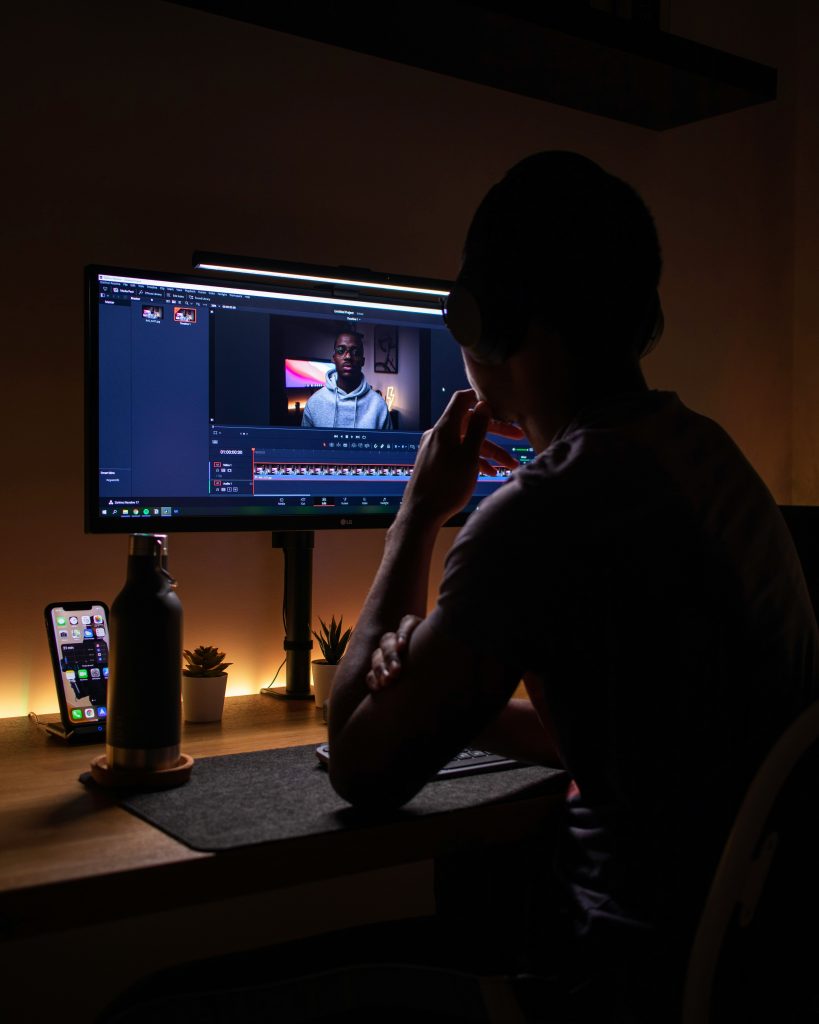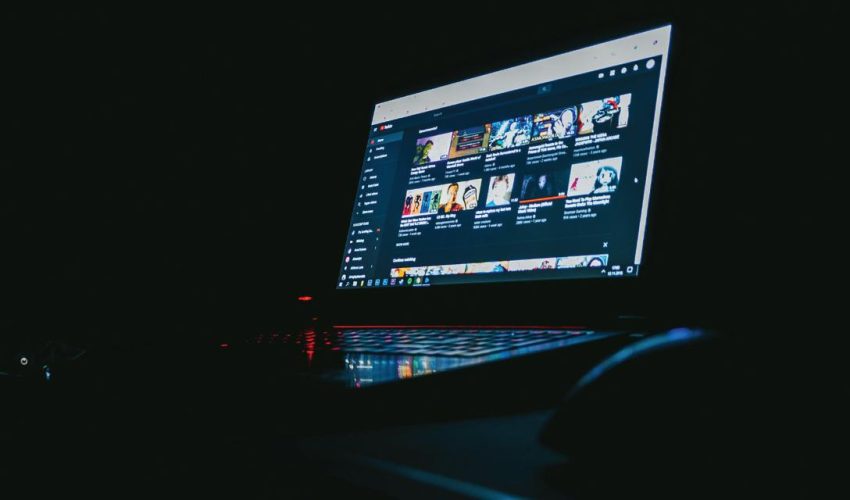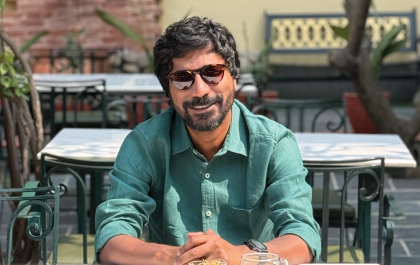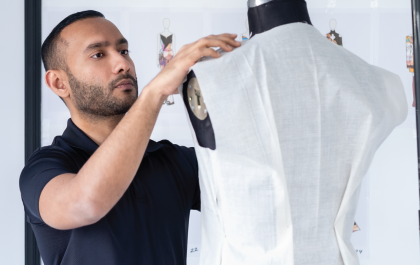Abak Hussain
On Christmas day of 2006, Time magazine’s much-anticipated Person of the Year issue came out with one of the weirdest-looking covers it had ever done – it was a reflective gray mylar surface pasted onto a large computer screen. If you held the cover up to your face you could (sort of, though quite poorly) see your own face, like looking at the mirror. The person of the year was … you!
All of this was, of course, a gimmick to honor Youtube, which had launched on February 14 of the previous year. If our first loves are ourselves, then perhaps it is no coincidence that it was on Valentine’s Day exactly 20 years ago that the platform which encouraged you to “broadcast yourself” was born, a platform where the loneliest person could make and post videos, and – if the content was good enough – gain thousands of subscribers, and be showered with love.
20 years after its founding, we are well placed to take stock of just how this platform has shaken up our world – from the way we think about making money, to watching videos and listening to music, to sharing our own creations with the world. Youtube has changed the way the world accesses knowledge and has thus changed interpersonal relationships in ways that we are only now beginning to comprehend. If you have a job interview but don’t know how to tie a tie, you no longer need to ask your dad – any number of Youtube instructional videos will have your back.
Maybe you want to cook peri peri chicken, maybe you want to learn to solve a Rubik’s cube, maybe you want to know how to apply for a new passport or change some details on your NID, maybe you want – ahem, need to – unclog your toilet pronto but have never held a plunger in your hands in your entire life. Panic not, friend! Some super-helpful Youtuber living thousands of miles away, who you have never met and never will, is there to rescue you, to explain it all to you in such tender detail that even a tubelight like you will understand.
What a lifetime of higher education failed to teach you, Youtube accomplished in a five-minute video – minus those pesky ads. Sometimes it has filled the void of absent family. Maybe you wish you had a cool older brother to teach you skateboarding tricks, or a grandmother to let you sous chef for her in the kitchen. There are channels for those things now, and while the value of human-to-human contact in the passing-on of knowledge can never quite be replaced, the nature of this dissemination has certainly evolved.
Then there’s the other side of the coin – while Youtube can teach you valuable life skills or cool tricks, its algorithm can also, if you are not careful, suck you into a sinkhole of mind-numbing content. Just about any person on earth with an internet connection can testify to the unparalleled time-wasting potential of Youtube. For those who lack the discipline, or are simply in a bad place, Youtube can be a trap, and like a lost soul swimming in a fishbowl, the viewer sees more and more of the same thing, often with toxic ideas reinforced. Youtube can push people towards body dysmorphia or unhealthy social comparison, and if you are not vigilant about vetting the quality of your sources, the platform can lead you down a wild goose chase. So the responsibility to decide what you should consume, and the task of controlling the dosage, and shutting off that screen when it is time also rests on … you!

Photo Source: Nubelson Fernandez
Youtube has gotten so deep into our cultural DNA by this point that is seems a bit out of date to even talk about it like it is a new thing. Most of Gen Z does not remember a time before Youtube, and I feel about a hundred years old recalling that WTF Time Magazine cover. It was ridiculous, it was audacious, and it seemed to herald in a new era. 20 years after Youtube was founded by Steven Chen, Chad Hurley, and Jawed Karim we know that the Time cover was onto something, though at the time, it was incredibly divisive. One writer called it one of the most controversial Time Person of the Year awards, alongside Hitler and Ayatollah Khomeini. But Time has always insisted that the Person of the Year is not meant to be an “award” as it is a reflection (haha!) of the cultural moment.
In 2005, with Facebook just a year into operations and Youtube just being born, we were certainly witnessing a cultural moment where knowledge would be democratized, everyone who wanted a platform would have a platform provided they had high-speed internet, and the old gate-keepers of knowledge and truth would come crumbling down. There is a good reason why dictators around the world hate Youtube – in our own country we have seen Youtube publish documentaries on the government’s wrongdoings, and it was through Youtube that anthems of the July uprising called on hundreds of thousands to take to the streets. No wonder the regime so desperately cut off the internet – Youtube at its best is a powerful tool of resistance, and can open the eyes of the world to the atrocities going on in a particular part of the world.
Two decades is a long time, but … it is also barely an instant. It seems to me a good juncture to understand the scope of a phenomenon and its pitfalls. On the occasion of Youtube’s 20th birthday, I have chosen to focus mostly on the positives. A naively incurable optimist, for the most part I choose to believe in the power of technology to be a force for good, as long as one is aware of its dark side. Nobel-prize winning journalist Maria Ressa warns us about how social media can be hijacked by authoritarians to serve their causes. Fake pages and fake news are allowed to proliferate, while bots drive up the views and drop fake comments that give the illusion of legitimacy. Youtube, just as it can expose dictators, can be used by dictators who pour money into think tanks to produce their own slick propaganda videos.
So yes, a tremendous amount of garbage is out there: We live in a world of lies, damned lies, and Youtube. But the truth is a funny thing and a resilient beast – it has a way of coming out from point B if killed in point A. Given the chance, the common people will spontaneously gravitate towards the right thing and try to find a sense of community. In Bangladesh, our previous regime exercised near-total control over all institutions, and flooded all airwaves, print and digital media, bookstores, schools, and public places with propaganda. It even pumped money abroad to get foreigners and diasporic Bangladeshis to write things in the regime’s favor. But all that dirty money couldn’t get Awaaz Utha taken off Youtube, even after its creator Hannan was arrested and detained by police. That little video kept getting played and replayed and replayed again, on devices all over the world.
Abak Hussain is Contributing Editor at MW Bangladesh.
Feature Image By -Leon Bublitz













